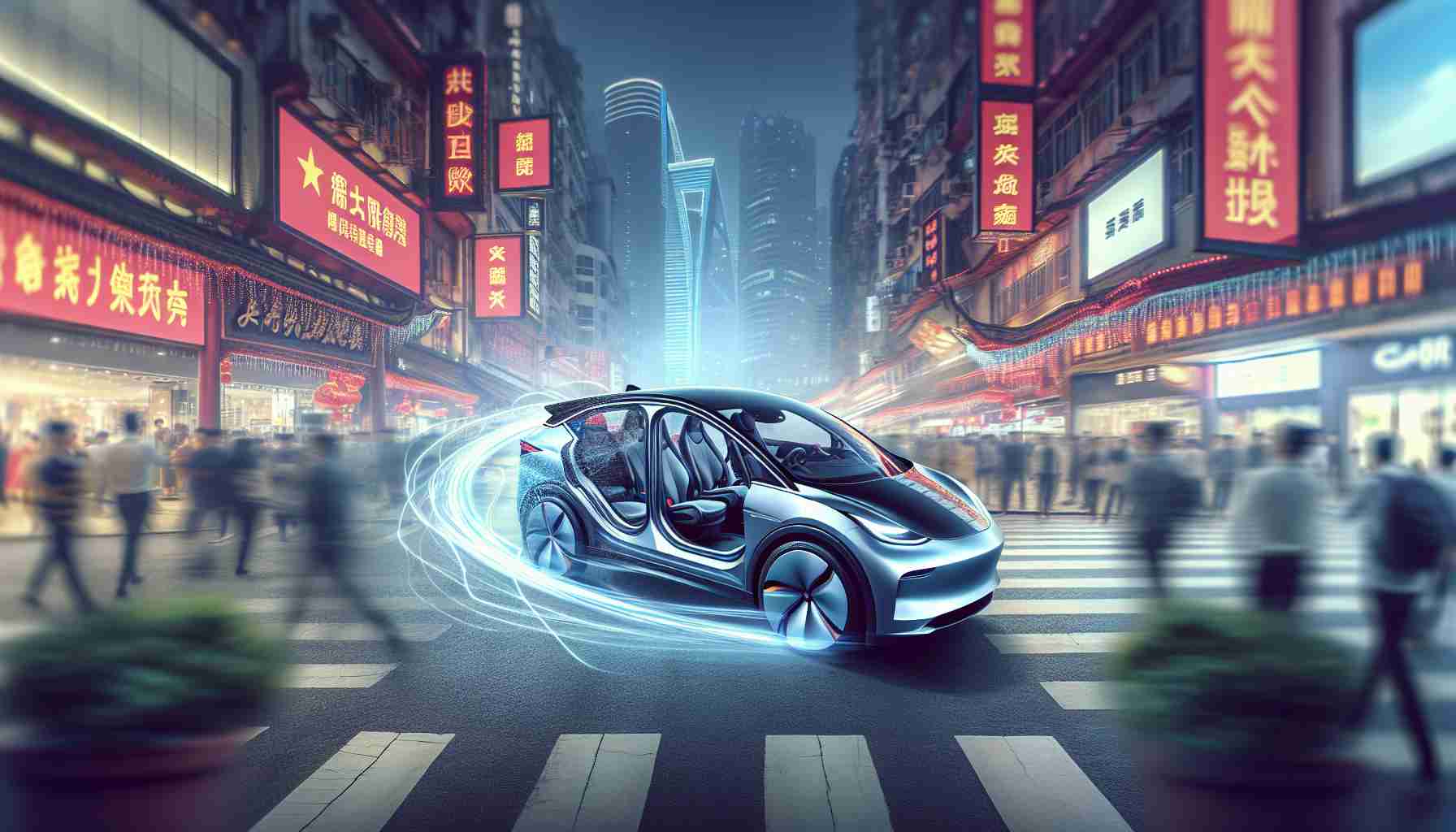Chinese tech giant Xiaomi is set to disrupt the electric vehicle (EV) market with its highly anticipated entry into the industry. The company’s CEO, Lei Jun, known for his success in affordable smartphones and sleek home appliances, is now placing his reputation on the line with the launch of Xiaomi’s first-ever EV, the SU7. This bold move pits Xiaomi against established players like BYD and Elon Musk’s Tesla in China’s fiercely competitive EV sector, the world’s largest car market.
With the discontinuation of purchasing subsidies in late 2022, China’s EV sector has experienced rapid growth. In a crowded market, numerous domestic automakers are currently engaged in a stiff price war, seeking to gain an edge. However, Xiaomi believes it has the winning formula. The SU7 is not only sleek and sporty but also comes in desirable colors such as blue bay, olive green, and elegant grey. To enhance the driving experience, Xiaomi has even incorporated “sound simulation” technology to recreate the thrill of driving a sports car.
While Lei Jun has not revealed the exact price of the SU7, he has promised that it will be the best-looking, best-driving, and smartest car available for under 500,000 yuan (RM327,529 or US$69,200). Analysts speculate that the actual price may be significantly lower, potentially falling between 200,000 to 250,000 yuan (RM131,011 to RM163,764). This price range is considered the most competitive segment within the Chinese EV market.
China is actively pushing for the adoption of electric and hybrid vehicles to combat greenhouse gas emissions. Its goal is for electric and hybrid models to dominate domestic car sales by 2035. Xiaomi’s entry into the EV sector aligns with the government’s plan and signals the company’s commitment to sustainability.
The launch of the SU7 comes hot on the heels of BYD’s record annual profits and expansion into international markets. While BYD remains the top seller of EVs worldwide, Xiaomi’s entry poses a new challenge. Xiaomi’s bold move into the EV market signifies not only the company’s ambition but also its determination to disrupt the automotive industry. As Xiaomi ventures into unknown territory, it will be interesting to see how this tech giant’s foray into electric mobility shapes the landscape of China’s rapidly evolving EV sector.
The Chinese electric vehicle (EV) market has seen significant growth in recent years, particularly with the discontinuation of purchasing subsidies in late 2022. This has created a crowded and highly competitive market, with numerous domestic automakers engaged in a stiff price war in order to gain an edge. Xiaomi, known for its success in affordable smartphones and sleek home appliances, is now entering the EV industry with its highly anticipated EV, the SU7. This move puts Xiaomi in direct competition with established players like BYD and Tesla in China’s largest car market.
Xiaomi believes it has the winning formula with the SU7. The vehicle not only boasts a sleek and sporty design but also comes in desirable colors such as blue bay, olive green, and elegant grey. To enhance the driving experience, Xiaomi has even incorporated “sound simulation” technology, which recreates the thrill of driving a sports car. While Xiaomi CEO Lei Jun has not revealed the exact price of the SU7, he has promised that it will be the best-looking, best-driving, and smartest car available for under 500,000 yuan (RM327,529 or US$69,200). Analysts speculate that the actual price may be even lower, potentially falling within the range of 200,000 to 250,000 yuan (RM131,011 to RM163,764), which is considered the most competitive segment within the Chinese EV market.
China has been actively pushing for the adoption of electric and hybrid vehicles as part of its efforts to combat greenhouse gas emissions. The government has set a goal for electric and hybrid models to dominate domestic car sales by 2035. Xiaomi’s entry into the EV sector aligns with this plan and demonstrates the company’s commitment to sustainability.
BYD, currently the top seller of EVs worldwide, recently reported record annual profits and has been expanding its presence in international markets. Xiaomi’s entry into the EV market poses a new challenge to BYD’s market dominance. Xiaomi’s ambitious move into the EV industry not only showcases the company’s determination but also signals its intention to disrupt the automotive industry. As Xiaomi explores the unknown territory of electric mobility, it will be intriguing to see how this tech giant’s entry shapes the evolving landscape of China’s rapidly growing EV sector.
For more information about the Chinese electric vehicle market and Xiaomi’s EV entry, visit Statista’s Electric Vehicle Market in China or go to Xiaomi’s official website.
